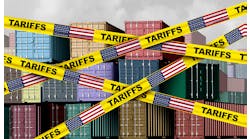The board at Monster Energy Drink had a decision to make. They were staring at a petition, signed by 21,000 consumers, who said that if they knew that the company used products that were produced by slave labor, they would all be drinking Red Bull from now on.
“Poor supply chain practices are a business risk, not just a sustainability one, and companies need to understand the business case for doing the right thing,” says Andrew Behar, CEO of As You Sow, a group that promotes environmental and social sustainability through shareholder advocacy, coalition building and original legal strategies.
In the case of Monster beverage, which finished last in the KnowtheChain ranking of companies for supply chain accountability on slavery and human trafficking, 20% of the shareholders voted for a proposal asking the company for transparency on these issues. Overseas producers of cane sugar, a main raw material in Monster’s product, are known to use child or forced labor in a number of countries, according to the U.S. Department of Labor.
Transparency is not just a good idea for a variety of reasons; it’s actually the law in some states. The California Transparency Supply Chains Act, for instance, which was enacted in 2012, requires companies to disclose information regarding their efforts to eradicate human trafficking and slavery within their supply chains.
In addition to the risks to companies who are not diligent in removing slave labor from their supply chain, environmentally-friendly corporate practices are top-of-mind when consumers, especially younger ones, choose products. One of the big issues currently is that of ocean waste. A 2015 study concluded that the ocean contains an estimated 150 million tons of plastic, with 8 million tons added annually, which is roughly equivalent to a garbage truckload dumped in it every minute. If this continues unchecked, the oceans will contain more plastic than fish by 2050, according to a prediction by the Ellen MacArthur Foundation.
After images of ocean waste dominated television reports, and plastic straws were identified as one of the top five items found in beach cleanup, companies and government agencies sprang into action. There were plastic straw bans in individual municipalities in Florida, New Jersey and California. And in July 2018, Seattle imposed the first U.S. ban on straws, following the lead of Vancouver a few months earlier. There are also active attempts to prohibit straws in New York City, Washington, D.C., Portland, Ore., and San Francisco. Seattle-based Starbucks, recognizing the mood of its customers, announced (shortly before the Seattle ban became public) that they will eliminate all plastic straws by 2020.
To ensure that it’s not just lone companies that are taking up the cause, As You Sow launched an international coalition of investors to engage publicly traded consumer goods companies on the threat posed by plastic waste and pollution. Twenty-five institutional investors from four countries, with a combined $1 trillion of assets under management, have signed a declaration citing plastic pollution as a clear corporate brand risk. The group will be working with Nestlé, Procter & Gamble, PepsiCo and Unilever to find new policies to deal with the issue.
And why are these companies so willing to address this issue?
“We view our role, in the arena of corporate sustainability, to ask companies how they intend to thrive or even survive over the next 10 years,” explains Behar. “We ask them to show us their business plan. It’s a great way to get management to look at future risks and mitigate them.”
And invariably sustainability is a large risk that is often hidden and hard to overcome. “How long did it take Nike to recover from the damage to its brand over the working conditions in the factories where its shoes were made?” Behar asks.
Companies can eliminate risks to their brands, and their profit, and even their viability by understanding, anticipating and acting quickly on issues that involve sustainability. If they need a push to do this, they simply need to take the pulse of their consumers, who are watching them closely.



